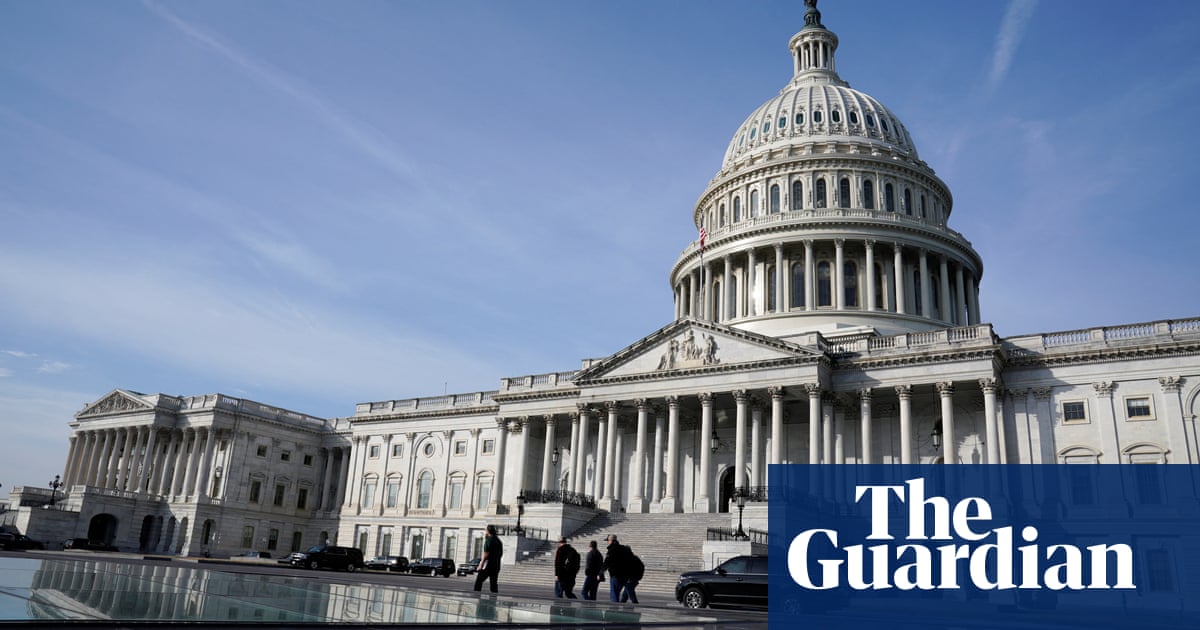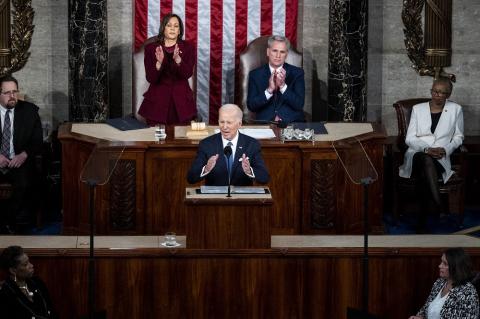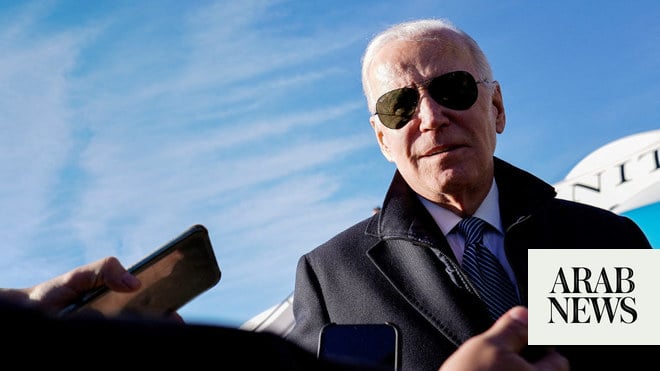
Joe Biden will outline an optimistic vision for the future of America in his second State of the Union address on Tuesday, White House officials said, hoping to combat the widespread sense of pessimism that surveys and polls have captured across the country.
As he marks the halfway point of his first term, Biden is expected to tout his legislative accomplishments from his first two years in office – including the passage of the Inflation Reduction Act, the Bipartisan Infrastructure Law and the Chips Act.
“This president is focused on delivering results for the American people, and we’ve seen him do that over and over and over again,” Kate Bedingfield, White House communications director, said. “We look forward to continuing to talk to the American people about the work that we are doing and the results that we’re delivering.”
But polls show most Americans have not yet felt the impact of Biden’s policies in their everyday lives, particularly when it comes to their personal finances. Although inflation has started to cool after peaking at an alarming rate of 9.1% last summer, only 21% of Americans rate current economic conditions as positive, according to a recent Pew Research Center survey.
Even the jobs market, which has been a bright spot for the US economy in recent months, does not inspire much confidence among the American public. The country’s unemployment rate hit a 53-year low of 3.4% last month, but just 34% of Americans say Biden has made progress on creating more good jobs for their communities, a new ABC News/Washington Post poll found.
Brian Deese, the outgoing director of the National Economic Council, said Biden would acknowledge these challenges in his State of the Union speech.
“The core message is: we have to make more progress, but people should feel optimism that because of what we have seen and because of the progress that we’ve made, that we know how to keep making progress,” Deese said Monday.
Progress will now be even more difficult for Biden to achieve, however. With Republicans in control of the House of Representatives, Biden faces significant hurdles in advancing his legislative agenda. Previewing the president’s Tuesday speech, White House officials said he would work with the new House Republican majority to find areas of common ground.
“We are going to work with Congress on a bipartisan basis to make progress on the issues that we’re talking about today,” Bedingfield said.
But the relationship between Biden and the new House Republican speaker, Kevin McCarthy, has gotten off to a rocky start. McCarthy has demanded government spending cuts in exchange for raising the debt ceiling, but Biden has insisted on a “clean” bill to raise the nation’s borrowing limit with no strings attached. The treasury has warned that the US could be at risk of default unless the debt ceiling is raised by June.
In an address Monday, McCarthy defended the Republican strategy of using the debt limit as a bargaining chip to extract spending cuts.
“The debt limit is one of the most important opportunities Congress has to change course,” McCarthy argued.
But the Republican’s speech was scant on details about exactly which programs his party would target. McCarthy said cuts to Medicare and social security – the largest federal spending programs – were “off the table” and told reporters Republicans would not raise taxes, leaving it unclear how his party plans to shrink the federal budget.
Deese said Biden would explicitly make the case in his Tuesday speech that raising the federal borrowing limit was “Congress’s constitutional obligation” and the responsibility of all elected officials to ensure the United States does not default on its debt.
Biden is prepared to hold separate talks with Republicans about fiscal discipline, Deese noted, but he has made clear he will not allow them to leverage the full faith and credit of the United States to force spending cuts.
“You will hear an openness and, in fact, an eagerness to have a real serious conversation about the fiscal and economic priorities of the country and where we can find common ground,” Deese said. “That’s the kind of conversation you have in a normal budget process, and that’s the appropriate way to approach these things.”
Biden will likely reiterate that message as he delivers his State of the Union speech, which he and his team have been crafting for weeks. Biden spent the weekend huddled at Camp David with advisers and his chief speechwriter, Vinay Reddy, fine-tuning the address. True to form, the president was “heavily engaged” in the drafting process, said White House press secretary Karine Jean-Pierre.
“When you hear the speech there’ll be no question that this is a Joe Biden State of the Union speech.” she said.












